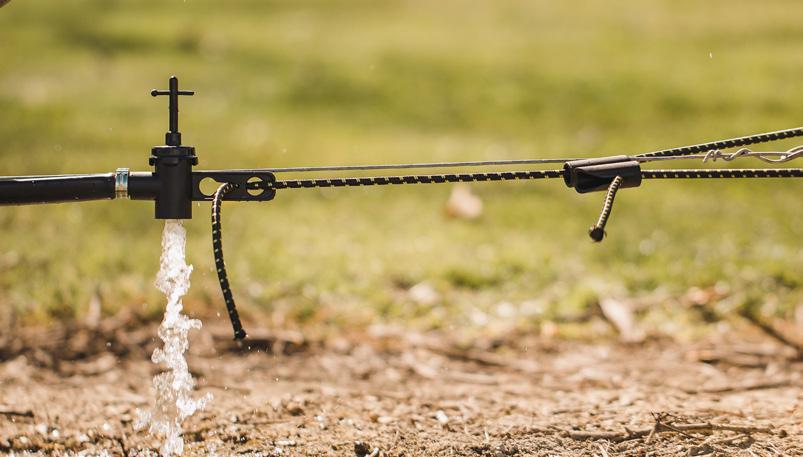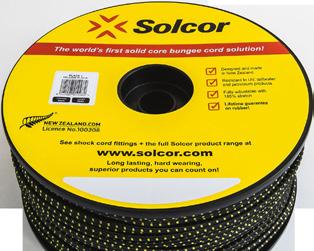
5 minute read
Biosecurity Watch Sophie Badland
Biosecurity Watch
Compensation in a biosecurity response
SOPHIE BADLAND
Biosecurity Responses - When a new agricultural or horticultural pest or disease outbreak occurs in New Zealand, the Ministry for Primary Industries (MPI) is the government agency charged with leading the response to eradicate or control the outbreak. MPI will first undertake an investigation to assess the risk, and then decide how to respond. For those pests or diseases where an operational agreement is in place with industry via the Government Industry Agreement (GIA), industry representatives will be involved with decision-making. A response team will be formed to plan and carry out the response. The Coordinated Incident Management System (CIMS) is used to provide the guidelines and protocols for the response team’s activities. It is worth noting that MPI may also form response teams for other significant events such as food safety problems, trade issues or adverse events like drought or flood.
Powers under the Biosecurity Act - When a response is declared, MPI is able to use certain powers under the Biosecurity Act 1993 to assist in the eradication or control of the pest or disease. Exercise of these powers may result in loss or damage to growers’ property or business - for example, vines or fruit may have to be destroyed, or movement restrictions may be placed on affected properties, preventing sale and disposal of fruit. Section 162A of the Biosecurity Act allows for growers to claim compensation in some situations where this type of loss or damage occurs.
Circumstances in which compensation can be claimed For compensation to be claimed by growers, certain conditions have to be met: • The loss must be caused by an MPI response, and; • The loss must be a direct result of damage or destruction of property, or; • Restrictions must have been imposed on the movement or disposal of goods, which has caused loss, and; • The loss must be able to be verified, and; • Claimants must have taken all reasonable steps to mitigate their losses (growers can also ask MPI to look at options for helping to reduce their losses), and; • Compensation claims must be lodged within 12 months of the loss occurring.
Reimbursement for response operational costs - Sometimes growers may be instructed or contracted to assist MPI with response activities, such as providing labour to remove and destroy affected or at-risk plants. The cost of labour would not form part of a compensation claim; instead, growers should provide an itemised GST invoice to the MPI response team for reimbursement.
Circumstances in which compensation cannot be claimed There are also situations in which growers would not be eligible for compensation under the Biosecurity Act: • The loss is caused by the unwanted pest or disease, as opposed to the exercise of powers by response staff. • The loss was suffered before the exercise of powers commenced. • The claimant fails to comply with biosecurity law in a serious or significant way, or in a way that contributed to the presence or spread of the unwanted pest or disease. • The goods are unauthorised (illegally imported; not cleared for release under the Biosecurity Act) • The claim is submitted more than 12 months after the loss is incurred. • Growers decide to take action above and beyond what is directed by MPI (for example, they destroy more vines than instructed). • The claimant is not directly affected by the exercise of powers.
IF YOU SEE ANYTHING UNUSUAL CATCH IT. SNAP IT. REPORT IT.

Call MPI biosecurity hotline 0800 80 99 66
Claiming compensation – the process - For growers believing they meet the criteria to claim compensation, the first step is to complete a claim form and submit it to MPI along with any supporting documents. This must be done within 12 months of the loss occurring. Claimants may want to submit a single claim once the response has concluded or can submit multiple claims throughout the response. The claim form can be downloaded from biosecurity.govt.nz/dmsdocument/39746-compensationclaim-form-general-20-feb-2020-pdf. To complete the form, growers will need to provide details about the losses they are claiming for, actions they have taken to reduce their loss, and their normal business operations. Supporting documentation can include destruction/removal records, stock valuation records, financial statements showing profit and loss/expenses for the previous three years, agreements, contracts, quotes, and invoices.Once MPI has received the claim, it will check for completeness and the claim may be sent back to the grower for further information. Once the claim has been assessed, MPI may recommend complete or partial payment. Payment then needs to be authorised; claims larger in value may need to be authorised at higher levels within MPI, or by the Minister or Cabinet, so may take longer. Once a payment has been authorised, a letter of offer will be sent to the grower. Once the offer is accepted, payment will be issued, and the claim will be closed. Where the offer is not accepted by the grower, a review can be requested. Review of decision - Even if a grower accepts and receives full or partial payment of their claim, they still have the ability to seek a re-assessment of their claim, provided they do so within 12 months of receiving payment. To request a review, growers must submit a review application form, with supporting documentation, to the compensation team at MPI. This form can be obtained by sending an email to CompensationCoordinator@mpi.govt.nz.
Ex gratia payments - Where a loss falls outside of what can be compensated under section 162A of the Biosecurity Act, an ex gratia payment may be considered by the Crown. These are assessed on a case-by-case basis and growers should contact the compensation coordinator if they think they have a case for this.
Biosecurity Act review - It is worth noting that the Biosecurity Act 1993 is currently under review, with compensation one of the areas where there are likely to be changes made to the legislation. New Zealand Winegrowers have participated in industry consultation sessions and will keep growers updated with any significant changes arising as a result of the Act review. Do you have specific questions about compensation in the event of a biosecurity response affecting your property? Email us at biosecurity@nzwine.com and we can put them to MPI and get back to you.
EXPERT MANUFACTURERS
Solcor
The World’s first solid core bungee cord solution
NEW Push Tap Flushing Valve - taking the work out of flushing and extending the life of your drip line. Use with Solcor solid core bungee and fittings to secure and protect your drip line.
03 579 5772
Designed and manufactured here in Marlborough. Available from your local irrigation supplier.

info@cordall.com www.cordall.com







